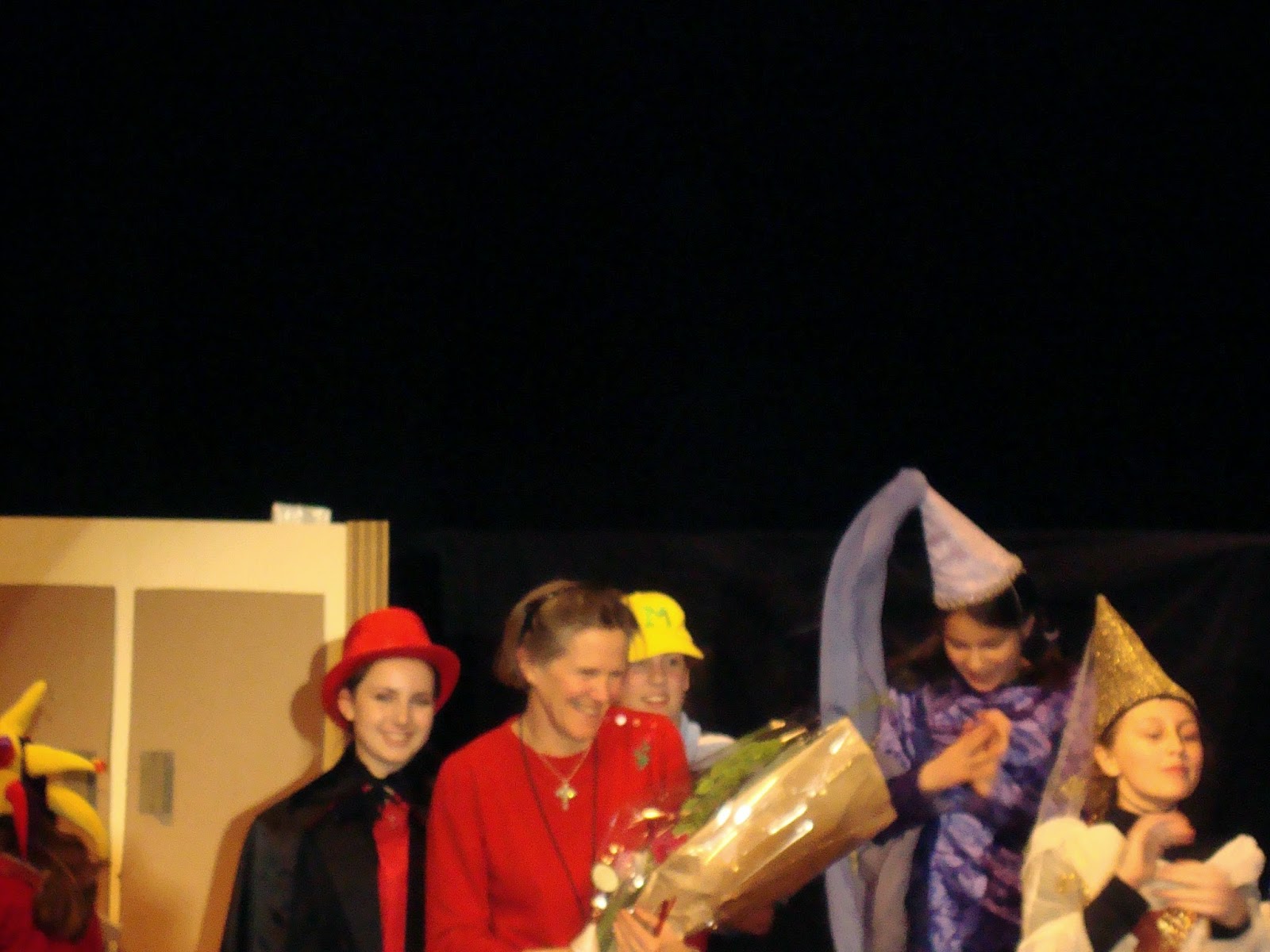We have an extraordinary cast. Every girl cast as an orphan is a triple threat, and doesn't even realize it. They all know each other's lines, so if someone is sick, (which has happened a lot this winter) there is always someone to take the line. They never forget choreography or blocking, and they never break character. The most amazing thing is how humble they all are, taking direction, listening to all of us, trying to get better at every turn. Humble to the core, is what I can say. The main characters are team players..Miss Hannigan is played by a brilliant talent that has now had a lot of experience in a short period of time. She was a princess last year in "The Phantom Tollbooth" and has had summer experiences at Ogunquit Playhouse for a few years, so she has that character etched into her sinews at this juncture. She is a happy child, but as Miss Hannigan, she is angry, cruel, intense, loud, frustrated, hurt, and under enormous pressure. This all comes through in her song, her demeanor, her costumes, her facial expressions- priceless.
Our Annie is demure, motherly towards the other orphans, subtle in her emotions, her facial expressions are beautiful and her proficiency is remarkable. I think she was memorized at the first blocking rehearsal. Her singing voice is of an angel, yet it cuts right through to the back of the house, and she has subtle emotion driving every line of "Maybe" and "Tomorrow". Her sophistication is impressive, she will be our new model for what Annie is supposed to be all about..not scrappy as much as intelligent, and soulful, truly working to bring herself and her orphan friends up a notch. It has been an effortless experience working with her, and with the sensitive and kind girl playing Drake, as well as the thoughtful and intellectual girl playing Daddy Warbucks.
The fifth grade girls playing Lily and Rooster are phenomenal, I hope they return for even more challenges next year, they are fabulous!!! The two boys in the show are real troopers, also. They keep us all believing that someday this will be an activity that will be as much about boys as it is about the girls fulfillment of goals. We are fortunate to have a cast that is a metaphor in itself for community. They help each other, they pitch in with all the props and sets and costumes, they are becoming a well-oiled machine..
DON'T MISS IT IF YOU CAN POSSIBLY BE THERE. I know for a fact, you will be glad you came, glad you saw the next generation of singers/dancers/actors on that stage, glad you realized how many people get involved in this activity all winter long.
These are photographs from last year's performance, I will post photographs from this year, when I have them available to me.
Thank you in advance to all the students, parents, teachers, helpers, and audience who have helped us become and remain a self-sustaining club all these years. Break a leg to all the performers next week and hope to see you all there!!!

















